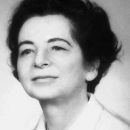3rd International Henryk Wieniawski Violin Competition
Poznań,1-15 December 1957
Watch a documentary about the competition:
Although a goverment’s decree permanently assigned Henryk Wieniawski Violin Competition to Poznań, its third edition was prepared by the “Warsaw Secretariat”. It was at the Ministry’s offices that the Competition programme and regulations were formulated, composition of the jury drawn up, and methods of participant recruitment and information imparting controlled. The “Poznań Secretariat” was entrusted with the task of securing “convenient working conditions for the candidates and members of the jury”. The euphoria of the 1956 “thaw” was dying down. The centre again (or, perhaps, still) distrusted the provinces.
A positive sign, however, was the development of the competition into a three-stage event, which, on the one hand, enriched the contest, but made it more difficult on the other. A fifteen-minute solo performance (Stage 1) was to be followed by a 45-minute recital with the piano (Stage 2); the offer of the final-stage concertos was expanded with works by Karłowicz and Szymanowski, as well as by contemporary composers: Grażyna Bacewicz and Zbigniew Turski. The jury was chaired by Grażyna Bacewicz, the famous composer and one of the laureates of the Competition’s first edition, while the body itself brought together two more luminaries of the Polish violin, Irena Dubiska and Eugenia Umińska, as well as a number of musical celebrities, also from outside our “block”; David Oistrakh, Andre Gertler, and Louis Persinger sat at one table, while Yehudi Menuhin was Honorary Member of the Jury.
Also the group of contestants aspiring to Wieniawski’s laurel had grown and got more ethnically varied: there came the British, the French, a Spaniard, a Turkish girl, Americans... At the very last moment violin players from Argentina, Chile and India cancelled their visit.
For numerous music-lovers the most vivid memory of the competition is Sidney Hearth, whose name is still present on the world’s music markets. Hearth, a student of George Enescu, belonged to “this rare breed of musicians, who express themselves with the violin completely”, as critics wrote about the audiences’ favourite musician. To this day, the University auditorium has not seen a delivery of Ysaÿe’s Ballad-Sonata to match his. In 1952 the American, already registered to participate in the Competition, was, in all probability, refused the Polish visa. Yet, five years later, the artist decided to take part in the Wieniawski Competition and honourably accepted (only) the Second Prize. He was also deprived of the gift (intended for the winner) from Antoine Ysaÿe, the famous Belgian composer’s son, who came to the event. Another noteworthy development was the very young Kenneth Sillito — nowadays the first concertmaster and conductor of the famous Saint Martin in the Fields Orchestra, and the legendary Neville Marriner’s right-hand man — not making it even to Stage 2 of the Competition. Specifically for the violin contest the University auditorium was refurbished and modernised (incl. a significant enlargement of the stage) for the second time in the post-war period. At the time it was witness to a singular rivalry between outstanding Polish conductors. In the final stage the contestants were accompanied by such illustrious masters of the baton as Zdzisław Górzyński, Jerzy Katlewicz, Stanisław Wisłocki and Bohdan Wodiczko, while in one of the complementary events Henryk Czyż conducted a storming performance of Honegger’s Le Roi David oratorio. “For a number of reasons Poznań is an excellent town to organize such competitions. It offered us artistic mood, beautiful hall of splendid acoustics, superb auditorium...” — on his departure David Oistrakh said to a journalist.
source: R. Połczyński, Da Capo. 75 lat Międzynarodowych Konkursów im. Henryka Wieniawskiego
Read more about the 3rd Competition (PDF, 1.05 MB) >

A poster of 3rd edition of Wieniawski Violin Competition designed by S. Małecki.
JURY
MEMBERS
Chairman: Grażyna Bacewicz (Poland)
Władmir Awramow (Bulgaria)
Gabriel Bouillon (France
)
František Daniel (Czechoslovakia)
Irena
Dubiska (Poland)
Gustaw Fritzsche (GDR)
André Gertler (Belgium
)
Zdzisław Jahnke
(Poland
)
Marija Mihailović (Yugoslavia)
Dawid Ojstrach (USSR)
Louis Persinger (USA)
Max Rostal (Great Britain)
Gerhard Taschner (GFR)
Vilmos Tátrai (Hungary
)
Eugenia
Umińska (Poland
)
Gioconda de Vito (Hungary)
Tadeusz Wroński (Poland)
PRIZE WINNERS
1st prize: Rosa FAIN (USSR)
2nd prize: Sidney HARTH (USA
)
3rd prize: Mark KOMISSAROV (USSR)
4th prize: Augustin
LEON-ARA (Spain
)
5th prize: Ayla ERDURAN
(Turkey)
6th prize: Vladimir MALININ
(USSR)
Awards:
Jiri Sumpik
(Czechoslovakia); Zenon Płoszaj (Poland); Jean Leber (France;
Dora Iwanowa (Bulgaria);
Daphne Godson (Great Britain)





















